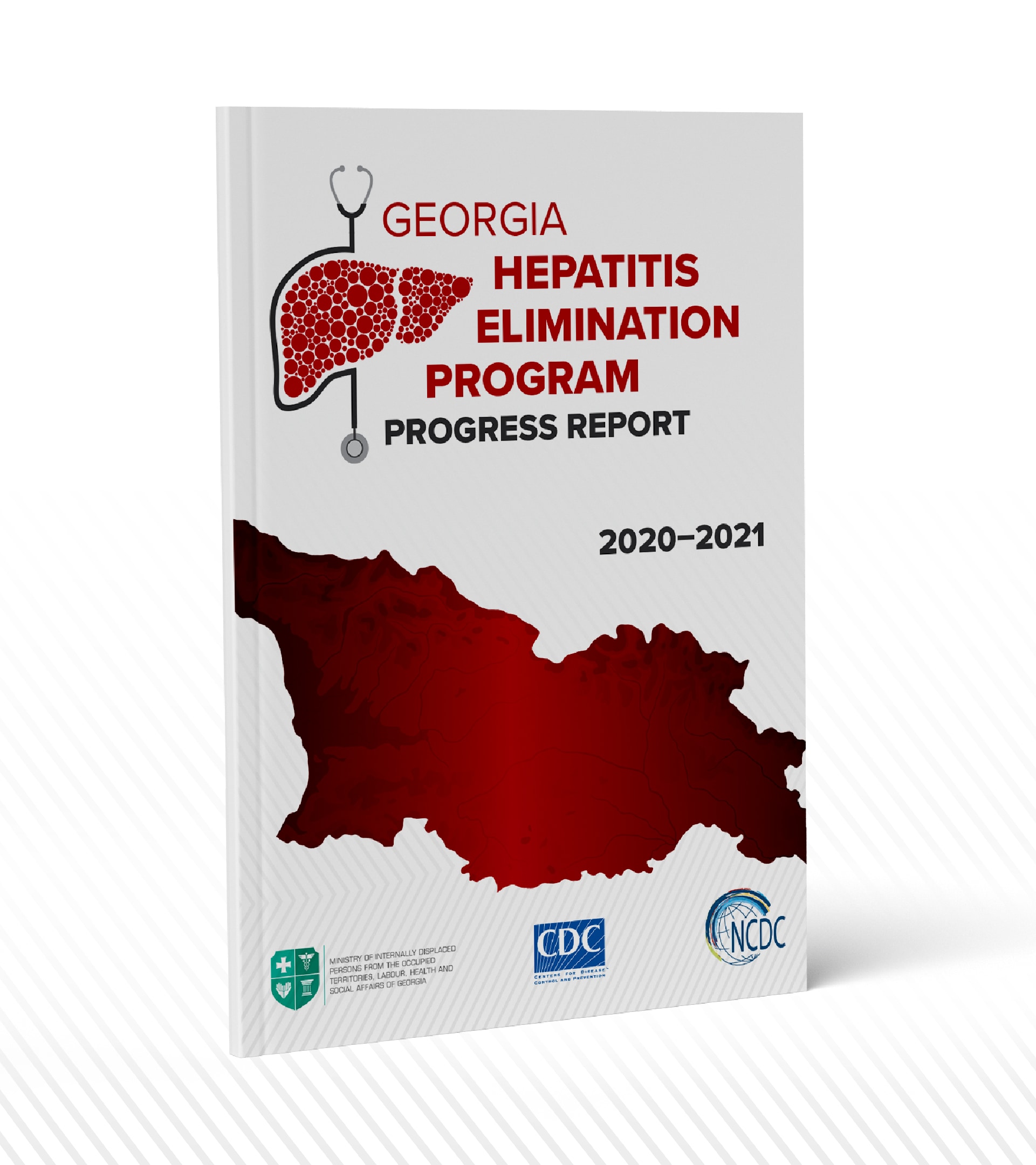Global Viral Hepatitis: Georgia’s Hepatitis C Elimination Program
In 2015, the CDC partnered with Georgia to launch the world’s first National Hepatitis C Elimination program1,2, which provides free testing and treatment with direct-acting antivirals (DAAs) for all citizens. Georgia is among the countries most affected by hepatitis C, with a 5.4% prevalence of chronic HCV infection and an estimated 150,000 persons living with chronic HCV infection based on a 2015 nationwide serosurvey3.
The Path to Elimination
The first Strategic Plan for the Elimination of Hepatitis C Virus in Georgia, 2016–2020 set the ambitious target of a 90% reduction in chronic HCV infections by 2020. CDC has provided technical support to Georgia to implement various projects and policies, identify challenges and strategies for overcoming barriers, and invest the resources needed to make continued progress towards reaching its elimination goals. As of October 2019, prior to the start of the COVID-19 pandemic, 53% of the estimated 150,000 adults with chronic HCV infection had been identified as part of the elimination program and 78% of those identified had initiated treatment. On average, 1,000 persons were initiating treatment each month, which would have reduced prevalence by 51% and incidence by 51% by the end of 20204. The COVID-19 pandemic had an impact on the program, reducing the number of people screened in 2020 by 25% compared to 2019. By end of December 2020, 90,578 people with chronic HCV infection had been detected and 72,811 treated. This progress towards the elimination targets is substantial, but continued scale-up is needed to reach elimination.
In 2021, an updated Strategic Plan for the Elimination of Hepatitis in Georgia, 2021–2025 was released, which recognizes the progress made and provides strategies to achieve elimination of hepatitis C by 2025. It also incorporates goals for the surveillance, prevention, and treatment of hepatitis B. A second nationwide serosurvey to assess the burden of hepatitis C and hepatitis B in Georgia was completed in October 2021 and results show a 67% reduction in HCV infection since 2015. This information will help to guide ongoing efforts to reach elimination.
A Standard of Excellence
Georgia’s leadership in the field of global viral hepatitis elimination has contributed to it being named the world’s first Center of Excellence in HCV Elimination by the International Liver Foundation, a non-profit organization sponsored by the European Association for the Study of the Liver5. Georgia serves as a model for other countries with large numbers of HCV-infected persons. CDC and other partners support Georgia to ensure that the lessons learned in this program are documented and used to guide future elimination efforts in other countries. The National Hepatitis Elimination Progress Report, 2020-2021 provides an update on the program progress made during 2020-2021, a short report of the second national serosurvey results, and includes all abstracts, posters, and publications associated with the program during this timeframe.
- Nasrullah M, Sergeenko D, Gvinjilia L, et al. The role of screening and treatment in national progress toward hepatitis C elimination—Georgia, 2015-2016. MMWR 2017;66(29):773–776. [Erratum in: MMWR 2017;Aug 11;66(31):838]
- Mitruka K, Tsertsvadze T, Butsashvili M, et al. Launch of a nationwide hepatitis C elimination program—Georgia, April 2015. MMWR 2015 Jul 24;64(28):753–7. [Erratum in: MMWR 2015;64(29):806]
- Hagan L, Kasradze A, Salyer S, et al. Hepatitis C prevalence and risk factors in Georgia, 2015: setting a baseline for elimination. BMC Pub Health 2019;19(Suppl 3):480.
- Walker JG, Kuchuloria T, Sergeenko D, et al. Interim effect evaluation of the hepatitis C elimination programme in Georgia: a modelling study. Lancet Glob Health. 2020;8(2):e244-e253. doi:10.1016/S2214-109X(19)30483-8
- Averhoff F, Lazarus JV, Sergeenko D, et al. Excellence in viral hepatitis elimination—lessons from Georgia. J Hepatol 2019; S0168-8278(19)30398–8. [Epub ahead of print.]
